|
Hi, it's iPLACENTA project manager Mirren writing here. I have just witnessed the six teams in our Enterprising Skills Training Programme deliver their end-of-programme business pitches and wow, I was impressed. 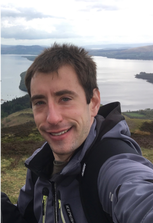 Lukas Markwalder Nationality: Swiss Work Institution: University of Dundee, Scotland Research Interest: Biomedical engineering Tea or Coffee?: A cup of tea please! Hi, my name is Lukas and I am an engineer from Switzerland. Right now, I am pursuing my PhD degree at the University of Dundee in Scotland. In this blog I want to give an insight about my professional background and how this influenced my decision to work on a biomedical project as a mechanical engineer. This shall be a report from an early-stage researcher to young adults taking the next step after the studies at the university. And I might have included a few cultural spoilers and interesting facts about countries…
Introduction
When people think about PhDs they directly think about academia. And rightly so, a PhD is by definition a “title conferred by the highest university degree” (Britannica, 2019). Just like any degree, a PhD is directly linked to the institution that confers the title regardless of whether the project is developed in institutions outside the academic environment. However, nowadays there exist scholarship schemes which require the involvement of partners unrelated to academia. An example of such is our iPLACENTA project which is part of the Marie Sklodowska-Curie Actions (MSCA) Innovative Training Networks (ITN). Innovative Training Networks foster the collaboration of beneficiaries (institutions which host PhD students) from academia as well as the non-academic sector (in iPLACENTA’s case: universities, clinical research institutions and industry). Even if ITNs have been around since 2014 [1], not many people know about this interdisciplinary form of PhD. As we are both enrolled in this type of PhD, this blog is an opportunity to share our personal experiences of Early Stage Researchers in the private sector, and, specifically, what it means to be one at Mimetas. Chapter after chapter, we will explore the life-enriching experience that is doing a Ph.D. outside the academic world. 16/10/2019 Shaping your PhD
Industry for researchers, academia for industrials… Have you also heard a lot about “the other side”, and maybe not so positive thoughts? Have you ever come across a general feeling of disdain, or even distrust, between those two worlds? By going through my (novice) experiences of research in academia and industry, I will try to explain you why I actually enjoyed going from one to another, and how I finally decided to go for a PhD which was quite an unusual path coming from an engineering background.
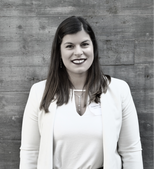 Yolanda Correia Nationality: Luxembourger and Portuguese Work Institution: Aston University Research Interest: Molecular Biology, Genetics, Placenta Tea or Coffee? Why not both? Coffee in the morning, tea in the evening. Everyone has a dream, a passion, a goal, a determination to do what they dream of. Some people aspire to be millionaires, others aspire to develop a new technology, others aspire to win the Nobel Prize, others aspire to have a family of their own and others aspire to have both an incredible career and an incredible family life. Over the years all these aspirations and/or these goals have changed and evolved and what used to be the aspiration of a woman can now also be the aspiration of a man and vice versa. For instance, 80 years ago, regardless of which country, it was unthinkable for a woman to choose a career over a family, not to mention to have both. Today, although not accepted in some countries, in many it has become completely normal and acceptable. However, that being said, I’ve been asked multiple times “Why are you always moving from one country to another? Do you not grow attached to people? Do you not love your family? Don’t you think it is time for you to settle down and grow your own family? Aren’t you tired of studying?”.
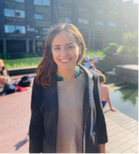 Veronica Giorgione Nationality: Italian Work Institution: St George's University of London Research Interest: Preeclampsia, preterm delivery and fetal congenital heart disease Favourite Hobby: Tasting new and delicious food. I am a foodie ;) In September 2018, after working as a junior doctor for 5 years at the San Raffaele hospital in Milan, I completed my Obstetrics and Gynecology training. Then, I had to answer the question: What next, what could or should I do? There were two opportunities I had to consider. The first logical option was to start the job I trained for, as an Obs. and Gyn. specialist in Italy. But, as I love a challenge, and as I thought this would have been the safer option, I decided to pick the second opportunity, to apply for the iPLACENTA project as I thought that it sounded more exciting and rewarding in the long run. I then took the plunge and moved to London to commence this incredible experience as a PhD student at St George’s University of London. St George’s University Hospital of London
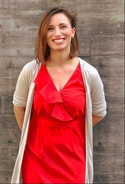 Jana-Charlotte Hegenbarth Nationality: German Work Institution: Maastricht University, The Netherlands Research Interest: Sequencing Techniques, Programming, Systemsbiology, Bioinformatics, Epigenetics Favourite Animal: Dogs & Tigers This blog post is about me and my personal experience on my way to uncover the black box called ‘bioinformatics’ or‘computational biology’. Many molecular biology researchers retreat upon hearing these words, because it is out of their expertise and also follows other rules than traditional lab work. I experienced that myself and I was one of them, until I took the risk to explore the ‘black box’. The Miracle © Sidney Harris
|
About the blogBeing a PhD student in a European training network is a life-changing adventure. Moving to a new country, carrying out a research project, facing scientific (and cultural) challenges, travelling around Europe and beyond… Those 3 years certainly do bring their part of new - sometimes frightening - but always enriching experiences. Categories
All
Archives
December 2021
|


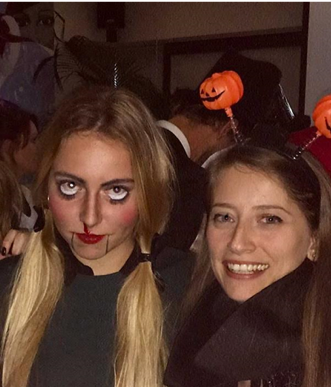
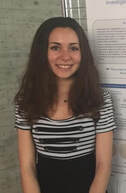
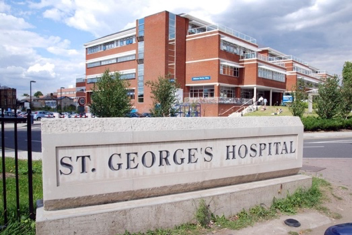

 RSS Feed
RSS Feed

29/6/2021
2 Comments